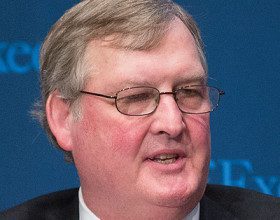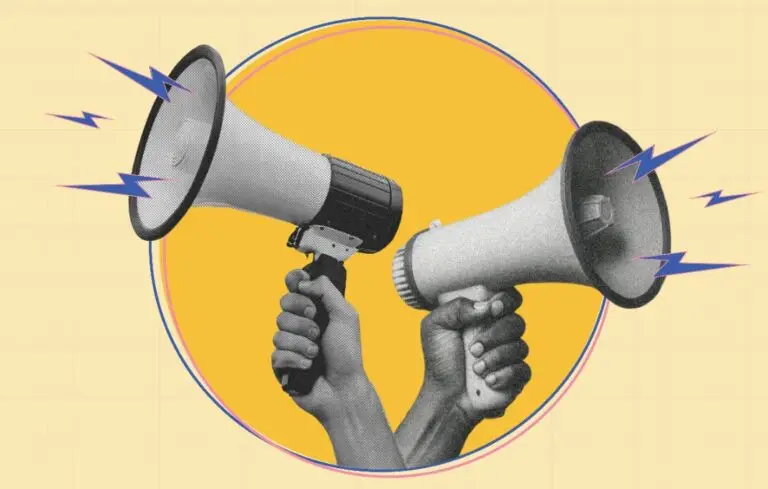People everywhere are concerned about technology’s impact on jobs and the economy, but was entrepreneur Elon Musk channeling his inner Luddite when he warned attendees at a National Governors Association meeting in Nevada last Summer about the economic disruptions that automation and artificial intelligence will cause? It wasn’t a casual slip. For good measure, he also sounded the alarm about the threat AI could pose to human life on Earth. In an interview with Nevada Governor Brian Sandoval from a state where Tesla is building a highly automated electric car engine “gigafactory” near Reno, Musk warned that “until people see, like robots going down the street killing people, they don’t know how to react [to AI] because it seems so ethereal.”
Sandoval, along with the other governors attending the meeting were stunned into dead silence. But Musk didn’t backtrack or qualify. He doubled down. The threat, he explained “is very real, at least, it will be soon.” “When I say everything, the robots will do everything, bar nothing,” he continued. As the automation revolution continues, “AI is a fundamental existential risk for human civilization, and I don’t think people fully appreciate that,” Musk said.
Oddly, other technology notables have expressed similar concerns. Microsoft founder Bill Gates says automation “will reduce demand for jobs, particularly at the lower end of skill sets.” Last May, Facebook CEO Mark Zuckerberg told Harvard’s graduating class of 2017 that increased automation would strip us not only of our jobs, but also of our sense of purpose. Mark Nall, a program manager for NASA, told Pew Research Center’s Aaron Smith and Janna Anderson, who investigated AI, robotics and the future of jobs, that “unlike previous disruptions such as when farming machinery displaced farm workers but created factory jobs making the machines, robotics and AI are different. Due to their versatility and growing capabilities, not just a few economic sectors will be affected, but whole swaths will be.
People have been worrying about automation wiping out jobs since English textile workers, called Luddites, smashed weaving machines in the early 19th century in an effort to roll back the technical advances of nascent industrialization. Similarly in 1900, 41 percent of American workers were employed in agriculture, but by 2000, automated machinery brought that number down to just 2 percent.
“AI is a fundamental existential risk for human civilization, and I don’t think people fully appreciate that.”
In the last 30 years, computers are increasingly performing tasks humans once did. You may have noticed that the once ubiquitous typing pool has vanished. Despite the efforts of the followers of Ned Ludd, 96 percent of the weaving work became automated, but the number of textile workers grew. The increase in productivity caused the cost of cloth to rapidly go down making it far more affordable for everyone to own multiple wardrobes, which in turn led to more demand for workers to produce more cloth.
Similarly, in the 1970s, the invention of the ATM was said to spell the end of bank tellers. Initially this was true, but the raised efficiency that this entailed allowed banks to open more branches, which in turn prompted the hiring of more tellers. U.S. bank teller employment rose by 50,000 between 1980 and 2010, but the tasks of these tellers evolved from merely dispensing cash to providing services like credit cards and loans—skills that ATMs don’t have. In fact, there is only one occupation where automation has actually destroyed jobs eradicating employment completely: Elevator operators.
So why are our foremost technology entrepreneurs suddenly squeamish about technology’s impact on society? In 1992, Neil Postman, a professor of communications at New York University, published a seminal book, “Technopoly, The Surrender of Culture to Technology,” in which he argued that technology is a branch of moral philosophy, not science. Because of its lengthy, intimate and inevitable relationship with culture, he observed, technology does not invite a close examination of its own consequences. It is the kind of friend that asks for trust and obedience, which most people are inclined to give because its gifts are truly bountiful. But, of course, there is a dark side to this friend. Its gifts are not without a heavy cost. Stated in the most dramatic terms, Postman writes, “that uncontrolled growth of technology destroys the vital sources of our humanity. It creates a culture without a moral foundation. It undermines certain mental processes and social relations that make human life worth living.” Technology, in sum, is both friend and enemy. It is highly likely that our technology celebrities are tapping their inner humanist as if to say, “Don’t curse me for the unintended consequences of my technological gifts to society.”
History has taught us a great deal about how automation disrupts industries, but people seldom appreciate that its chief result is that of, as Postman says, unintended consequences. Researchers at the McKinsey Global institute concluded that only 5 percent of occupations are fully automatable employing currently available technologies. They noted that jobs that people do today thanks largely due to high productivity made possible by technological advances are vastly different from those that were done at the turn of the 20th century.
Automation, and to some extent, AI’s impact on employment is more about changing the nature of work than it is about harming people’s prospects. Despite his skill as a hi-tech entrepreneur, Elon Musk may be getting ahead of himself, or at least ahead of the data. The majority of the fields most transformed by technology have produced the biggest increases in employment, from medicine to management consulting. Disappearing factory jobs have been replaced by jobs in services, where highly skilled workers, like doctors and computer programmers, are paid more.
James Bessen, an economist, who serves as Executive Director of the Technology & Policy Research Initiative at Boston University School of Law, told Wall Street Journal’s Christopher Mims, “that the problem of [automation] is not mass unemployment, it’s transitioning people from one job to another.” Perhaps this is the challenge to which Musk and his fellow technorati should direct their considerable talents and intellect.







